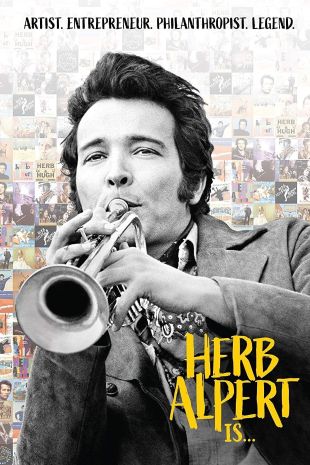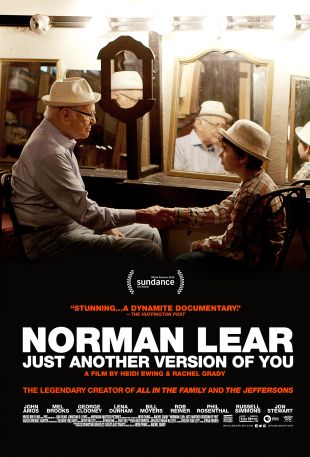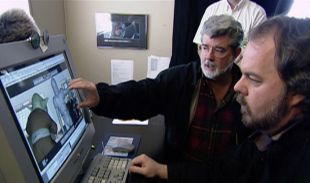PBS mainstay Bill Moyers single-handedly reinvented televised American journalism during the 1970s, '80s, and '90s. Upholding a distinct tradition of broadcast journalism termed "deep think," which he inherited from the legendary Edward R. Murrow, Moyers specialized in probing sensitive, complex, and multilayered social issues affecting the international climate. Moyers diverged dramatically from Murrow, however, in his soft-spoken, consistently venerable southern delivery -- a delivery that quickly became one of his trademarks. This affable presence, coupled with Moyers' politically progressive stance and his insistence on probing all sides of an issue via extended conversations with international thinkers, helped the journalist draw millions of loyal viewers who stuck with him throughout numerous series runs. In the process, audiences helped turn Moyers into an American icon.
Born June 5, 1934, in Hugo, OK, and raised in Texas, Moyers launched several careers, consecutively, as a young man. He started as a cub reporter on the Marshall News Messenger at age 16, and then attended the University of Texas as an undergraduate (the institution later awarded him with the Distinguished Alumni Award) and Southwestern Baptist Theological Seminary as a graduate student, where he earned his Master of Divinity. Moyers subsequently established himself as a print journalist, and received appointments, in the 1960s, as Deputy Director of the Peace Corps for President John F. Kennedy and press secretary to President Lyndon B. Johnson. (An American Journalism Review survey in the early 2000s named Moyers as the finest press secretary in the history of the U.S. government.)
Moyers resigned from his post under Johnson in January 1967 to sign on as publisher of Newsday, and spent several years in that role, before debuting as a television presence and personality in the early '70s, with Bill Moyers' Journal (1971-1976, 1979-1981). This intelligent and incisive news magazine program, produced by the PBS affiliate WNET 13 in New York, featured Moyers conducting in-depth conversations with personalities as disparate as Ronald Reagan, Andrew Young, and Jerry Brown. It also featured stories about relevant subjects affecting and shaping the sociopolitical landscape; a few of the many areas of emphasis included religion and spirituality, politics, geography, sexuality, economics, and gender issues. The program's über-conscientious avoidance of sensationalism set it apart from such competitors as 60 Minutes and -- in the late '70s -- 20/20.
Alongside this initial success as a broadcast personality, Moyers published a series of instant best-sellers, many consisting of transcriptions of his programs. His bibliography includes the titles Listening to America, The Secret Government, Joseph Campbell and the Power of Myth, Report from Philadelphia, Genesis, Fooling with Words: A Celebration of Poets and Their Craft, A World of Ideas I and II, and most recently, Moyers on America.
In 1976, Moyers temporarily withdrew from PBS and wrapped production on the Journal series, signing on as senior news correspondent for CBS -- a position that lasted three years. After Journal resurfaced in 1979 and folded two years later, Moyers produced and hosted such limited-run series programs for PBS as Creativity with Bill Moyers (1982), Our Times with Bill Moyers (1983), and A Walk Through the 20th Century with Bill Moyers (1984). The episode of Creativity with Bill Moyers that featured Maya Angelou (and Moyers accompanying that author on a trip back to her Southern home) became a classic of broadcast journalism and documentary filmmaking, as well as an educational staple.
In 1986, Moyers and his wife, Judith Davidson Moyers, co-founded a production company, Public Affairs Television, that has produced and released hundreds of hours of programming through their efforts, largely seen on public-television affiliates. Titles from the mammoth Public Affairs library include The Power of the Word, Listening to America, Free Speech for Sale, The Sounds of Poetry, Trade Secrets, Earth on Edge, and Trading Democracy.
Moyers continued to host several limited-run PBS series during the '90s, including Amazing Grace (1990), Spirit and Nature with Bill Moyers (1991), Healing and the Mind with Bill Moyers (1993), and The Language of Life with Bill Moyers (1995). In early 2006, he headlined Bill Moyers on Faith and Reason, a seven-part series of discussions with international writers including Salman Rushdie, Martin Amis, Sir John Houghton, David Grossman, Colin McGinn, and Margaret Atwood, that capitalized on the popularity of such works as The Passion of the Christ and The DaVinci Code, by examining how it is possible to keep the public space between rational reason and religious faith from turning into a ideological war zone. Later that same year, Moyers emerged with Moyers on America, another informational series that examined contemporary issues facing the U.S. Subtopics included the Abramoff lobbying scandal, environmental debates among conservative evangelical Christians, and civil liberties as they apply to Internet usage.


